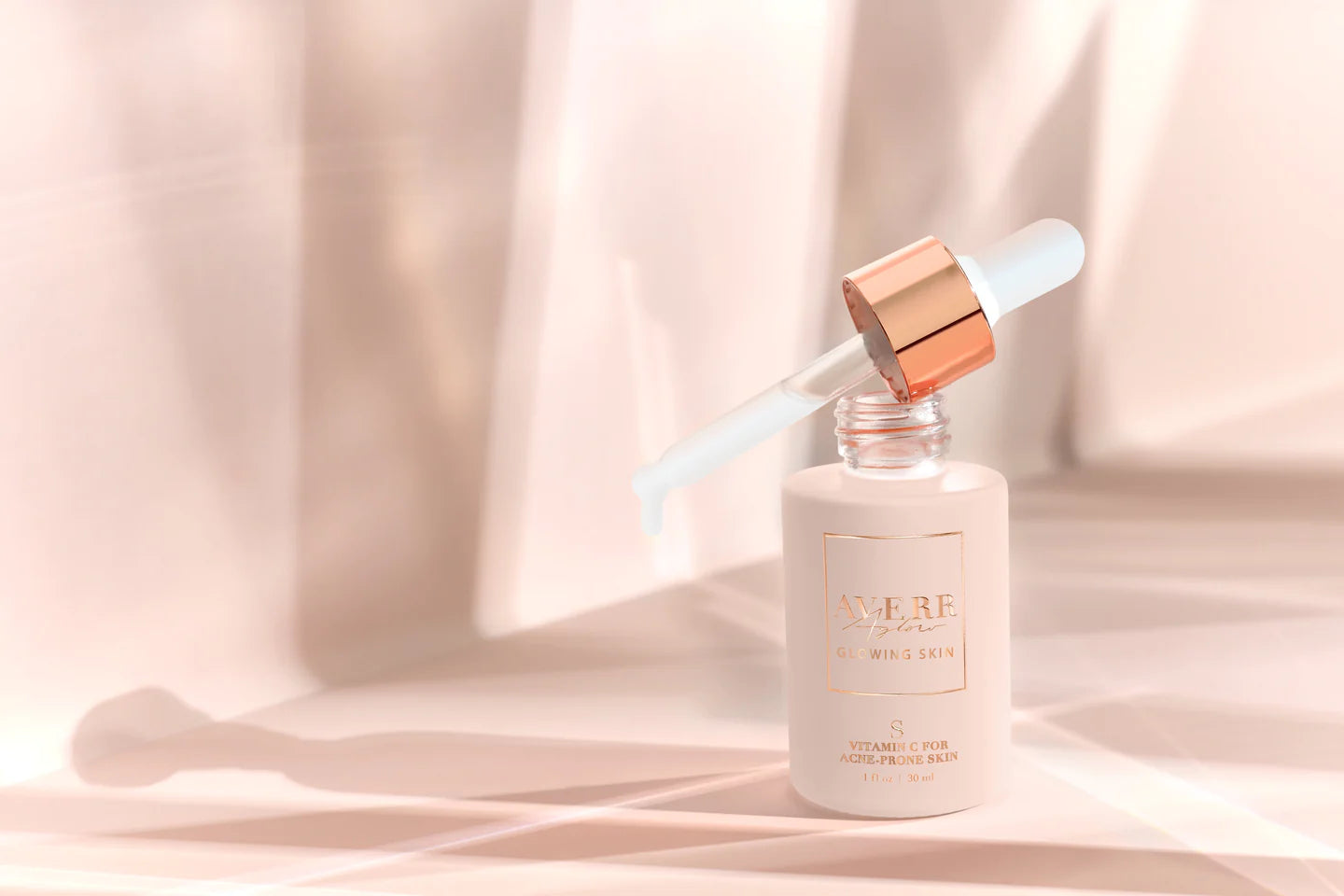
Vitamin C Serum
What is Vitamin C Serum?
Vitamin C serum is a powerhouse formulation specifically designed for topical application that typically combines the potent antioxidant properties of vitamin C with other skin-loving ingredients. Unlike traditional moisturizers or cleansers, vitamin C serum is crafted to target specific skin concerns. Its lightweight texture and high concentration of vitamin C set it apart, making it a crucial addition to any skincare routine. At the heart of vitamin C serum lies its capacity to combat oxidative stress and environmental aggressors, primarily attributed to the potent antioxidant properties of vitamin C. This essential nutrient plays a pivotal role in neutralizing free radicals that can contribute to premature aging, fine lines, and wrinkles.
Moreover, vitamin C serum distinguishes itself through its targeted approach to skincare concerns. Whether it's addressing uneven skin tone, reducing the appearance of dark spots, or promoting collagen synthesis for firmer, more youthful skin, the formulation is tailored to deliver results where they are needed most. Its lightweight consistency ensures easy absorption, allowing the potent ingredients to penetrate deeply into the skin, maximizing their impact and providing a revitalizing boost.
The high concentration of vitamin C within the serum elevates its efficacy, ensuring that each application delivers a potent dose of skin-rejuvenating benefits. This concentration is a key factor in achieving visible improvements in the complexion over time, making vitamin C serum a go-to choice for those seeking transformative results in their skincare journey.
In essence, vitamin C serum transcends the conventional boundaries of skincare, embodying a specialized and potent elixir for those who prioritize targeted, effective solutions. With its unique formulation, feather-light feel, and a concentration of vitamin C that speaks to its commitment to excellence, this serum emerges as a crucial ally in the pursuit of radiant, healthy skin.
Skin Benefits of Vitamin C Serum:
Vitamin C is renowned for its antioxidant prowess, effectively neutralizing free radicals that contribute to premature aging. Additionally, it plays a pivotal role in collagen synthesis, promoting elasticity and reducing the appearance of fine lines and wrinkles. The brightening effects of vitamin C help fade dark spots and impart a youthful glow, making it a versatile solution for achieving healthier and more vibrant skin.
Here are some key advantages:
- Antioxidant Protection: Vitamin C is a potent antioxidant that helps neutralize free radicals, protecting the skin from oxidative stress caused by factors like UV radiation and pollution. This can help prevent premature aging and reduce the risk of skin damage.
- Collagen Synthesis: Vitamin C plays a crucial role in collagen production, a structural protein essential for maintaining skin elasticity and firmness. By stimulating collagen synthesis, vitamin C can contribute to a more youthful and resilient complexion.
- Brightening and Even Skin Tone: Vitamin C has skin-brightening properties, which can help fade dark spots, hyperpigmentation, and discoloration. Regular use of a vitamin C serum can contribute to a more even skin tone and a radiant complexion.
- Wrinkle Reduction: The antioxidant properties of vitamin C help combat the formation of free radicals, which are associated with the aging process. This can potentially reduce the appearance of fine lines and wrinkles, promoting smoother skin.
- Sun Damage Protection: While not a substitute for sunscreen, vitamin C can enhance sun protection.
- Hydration: Vitamin C has the potential to promote skin hydration and moisture retention, contributing to a plump and supple skin texture.
How Does Vitamin C Help with Acne?
Beyond its anti-aging properties, vitamin C serum can be a valuable ally in the battle against acne. Thanks to its anti-inflammatory properties, vitamin C helps soothe irritated skin and reduce redness associated with acne lesions. Furthermore, its ability to promote skin healing can aid in minimizing acne scars, contributing to a smoother complexion. Incorporating vitamin C serum into your skincare routine may prove beneficial for those grappling with acne-related concerns.
Vitamin C can offer several benefits for acne-prone skin:
- Anti-Inflammatory Properties: Acne is often associated with inflammation, and vitamin C has anti-inflammatory effects. By reducing inflammation, vitamin C may help alleviate redness and swelling associated with acne lesions.
- Promotion of Wound Healing: Vitamin C plays a crucial role in the synthesis of collagen, a protein that aids in wound healing. For acne lesions, especially if they result in scars or hyperpigmentation, the collagen-boosting properties of vitamin C can contribute to faster and more effective healing.
- Reduction of Post-Inflammatory Hyperpigmentation (PIH): Acne blemishes can leave behind dark spots known as post-inflammatory hyperpigmentation. Vitamin C's skin-brightening effects may help fade these dark spots, promoting a more even skin tone.
- Antioxidant Protection: Acne-prone skin can be more susceptible to oxidative stress. Vitamin C, as an antioxidant, helps neutralize free radicals that can exacerbate inflammation and contribute to acne formation.
- Control of Sebum Production: While not as pronounced as some other acne-fighting ingredients, vitamin C may help regulate sebum (oil) production. Excessive sebum can contribute to clogged pores and acne development.
- Enhanced Effectiveness of Other Acne Treatments: Vitamin C can complement other acne treatments, such as salicylic acid or benzoyl peroxide. Its antioxidant properties can enhance the overall efficacy of your skincare routine by providing additional protection against environmental stressors.
Incorporating vitamin C into a comprehensive skincare routine that includes gentle cleansing, moisturizing, and sunscreen is advisable.
What Does Vitamin C Serum Do for Your Face?
Vitamin C serum acts as a powerhouse for facial skin. It brightens and tightens, promoting a youthful glow by reducing the appearance of fine lines and wrinkles. The serum's antioxidant properties protect the skin from environmental damage, leaving it looking refreshed and revitalized.
When incorporating a vitamin C serum into your skincare routine, it's important to apply it to clean, dry skin and follow up with a moisturizer and sunscreen during the day. Regular and consistent use can maximize the benefits of vitamin C for your face.
Is It Okay to Use Vitamin C Serum Every Day?
Yes, using vitamin C serum daily is generally safe and encouraged for optimal results. The consistency of daily use helps maintain a steady supply of antioxidants, offering continuous protection against free radicals.
What Percent of Vitamin C Serum Is Best?
The optimal percentage of vitamin C serum depends on individual skin sensitivity. Beginners may find success with concentrations around 10-15%, while experienced users might benefit from higher concentrations, of up to 20%.
How to Use Vitamin C Serum
Using vitamin C serum effectively involves proper application and incorporation into your skincare routine. Here's a step-by-step guide on how to use vitamin C serum:
- Cleanse Your Face: Start with a gentle cleanser to remove any makeup, dirt, or impurities from your face. Pat your skin dry with a clean towel.
- Tone (Optional): If you use a toner as part of your skincare routine, you can apply it after cleansing. Toning is optional but can help balance your skin's pH levels.
- Apply Vitamin C Serum: Dispense a small amount of the vitamin C serum onto your fingertips. A pea-sized amount is generally sufficient. Gently apply the serum to your face and neck. Be careful around the eye area to avoid irritation.
- Allow Absorption: Give the serum a few minutes to absorb into your skin. This allows the vitamin C to penetrate and provide its benefits.
- Follow with Other Skincare Products: If you use other skincare products, such as moisturizers or additional treatment serums, apply them after the vitamin C serum. Follow the order of thinnest to thickest consistency.
- Use Sunscreen in the Morning: If you're using vitamin C in the morning, always follow up with a broad-spectrum sunscreen with at least SPF 30. Vitamin C enhances the effectiveness of sunscreen and provides additional protection against UV damage.
- Adjust Frequency: When introducing a new vitamin C serum into your routine, start by using it every other day or a few times a week. Monitor how your skin responds, and if there's no irritation, gradually increase the frequency of daily use.
Additional Tips:
- Morning or Evening: While vitamin C is often used in the morning for its antioxidant protection, you can also use it in the evening if you prefer. If using both morning and evening, apply the serum in the morning and another treatment serum in the evening.
- Storage: Store your vitamin C serum in a cool, dark place. Vitamin C can degrade with exposure to light and air, so keeping the product in its original packaging and closing it tightly after each use is essential.
In conclusion, incorporating vitamin C serum into your daily skincare routine can unlock a myriad of benefits, from revitalizing dull skin to addressing acne-related concerns. As you embark on your journey to healthier skin, consider the transformative power of vitamin C serum – a simple yet potent addition that could make all the difference. Consider integrating vitamin C serum into your daily routine to unlock the full potential of radiant and youthful-looking skin.






